Nurses Narratives - Sister Madge Nisbet
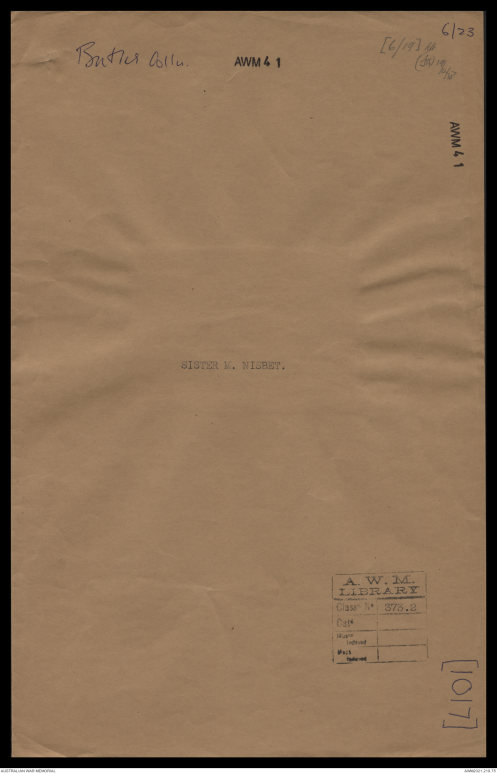
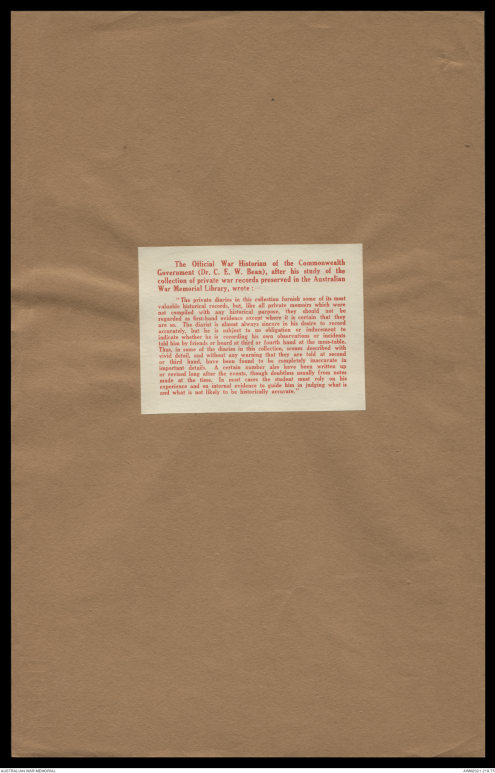
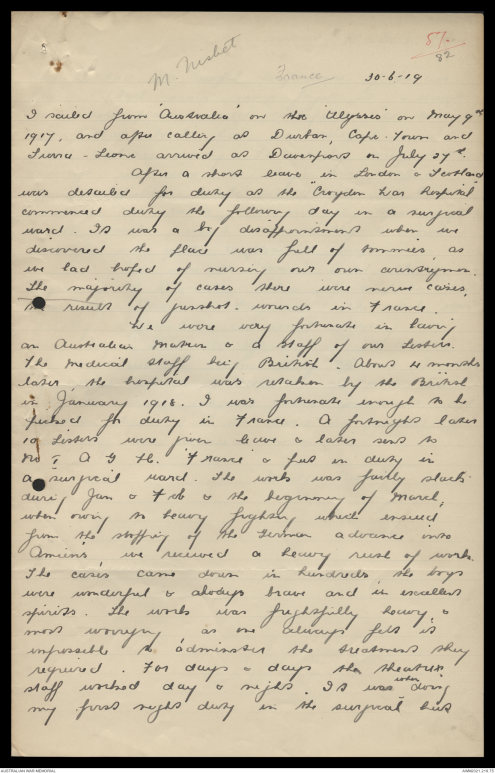
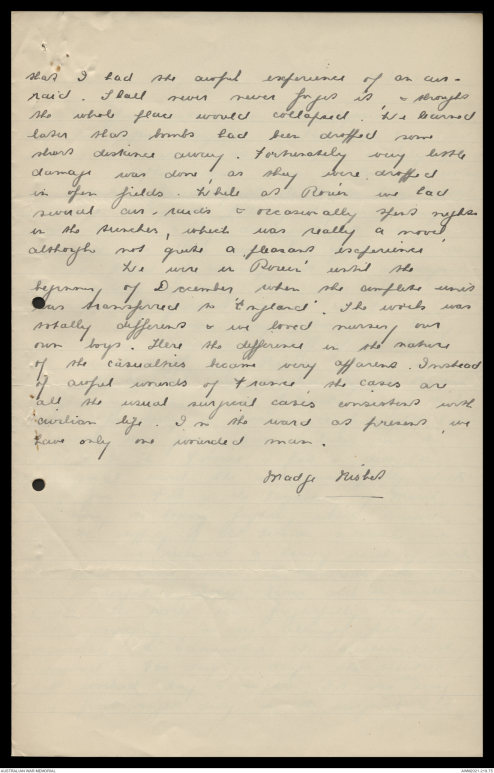
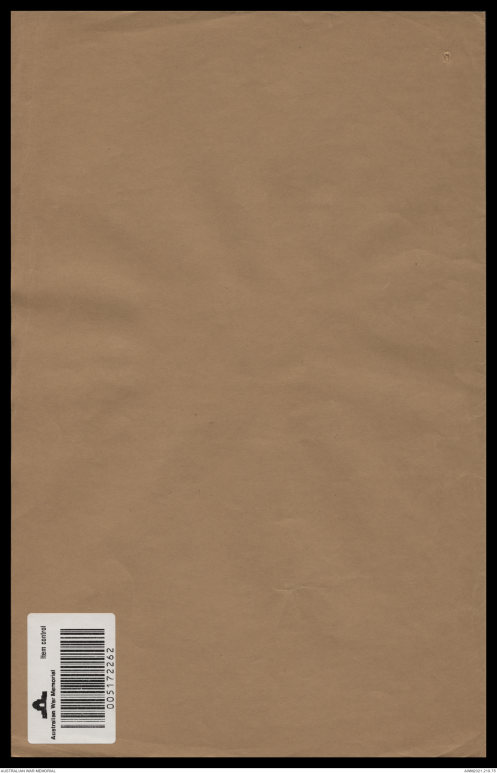
6/23
Butler Colln.
AWM 4 1 [6/19] [[RH?]]
(JM) 19/6/18
SISTER M. NISBET.
[*AWM 4 1*]
A.W.M.
LIBRARY
Class No. 373.2
[*[1017]*]
LIBRARY
The Official War Historian of the Commonwealth
Government (Dr. C.E.W. Bean), after his study of the
collection of private war records preserved in the Australian
War Memorial Library, wrote:
"The private diaries in this collection furnish some of its most
valuable historical records, but, like all private memoirs which were
not compiled with any historical purpose, they should not be
regarded as first-hand evidence except where it is certain that they
are so. The diarist is almost always sincere in his desire to record
accurately, but he is subject to no obligation or inforcement to
indicate whether he is recording his own observations or incidents
told him by friends, or heard as third or fourth hand at the mess-table.
Thus, in some of the diaries in this collection, events described with
vivid detail, and without any warning that they are told as second
or third hand, have been found to be completely inaccurate in
important details. A certain number also have been written up
or recorded long after the events, though doubtless usually from notes
made at the time. In most cases the student must rely on his
experiences and an internal evidence to guide him in judging what is
and what is not likely to be historically accurate."
M. Nisbet
51/82
France 30-6-19
I sailed from 'Australia' on the 'Ulysses' on May 9th
1917, and after calling at Durban, Cape Town and
Sierra-Leone arrived at Davenport on July 27th.
After a short leave in London & Scotland
was detailed for duty at the "Croydon War hospital"
commenced duty the following day in a surgical
ward. It was a big disappointment when we
discovered the place was full of tommies, as
we had hoped of nursing our own countrymen.
The majority of cases there were nerve cases,
The result of gunshot, wounds in France.
We were very fortunate in having
an Australian Matron & a staff of our Sisters.
The Medical staff being British. About 4 months
later, the hospital was retaken by the British
in January 1918. I was fortunate enough to be
picked for duty in France. A fortnights later
10 Sisters were given leave & later sent to
No 1 A G H. 'France' & put on duty in
a surgical ward. The work was fairly slack
during Jan & Feb & the beginning of March,
when owing to heavy fighting which ensued
from the stopping of the German advance into
Amiens, we received a heavy rush of work.
The cases came down in hundreds, the boys
were wonderful & always brave and in excellent
spirits. The work was frightfully heavy &
most worrying, as one always felt it
impossible to administer the treatment they
required. For days & days the theatrex
staff worked day & night. It was when doing
my first night duty in the surgical hut
that I had the awful experience of an air-raid.
Shall never never forget it - thought
the whole place would collapsed. We learned
later that bombs had been dropped some
short distance away. Fortunately very little
damage was done, as they were dropped
in open fields. While at Rouen we had
several air-raids & occasionally spent nights
in the trenches, which was really a novel,
although not quite a pleasant experience
We were in Rouen' until the
beginning of December when the complete unit
was transferred to 'England'. The work was
notably different & we loved nursing our
own boys. There the difference in the nature
of the casualties became very apparent. Instead
of awful wounds of France, the cases are
all the usual surgical cases consistent with
civilian life. In the ward at present, we
have only one wounded man.
Madge Nisbet
Item control
Australian War Memorial
005172262
 Sandy Mudie
Sandy MudieThis transcription item is now locked to you for editing. To release the lock either Save your changes or Cancel.
This lock will be automatically released after 60 minutes of inactivity.